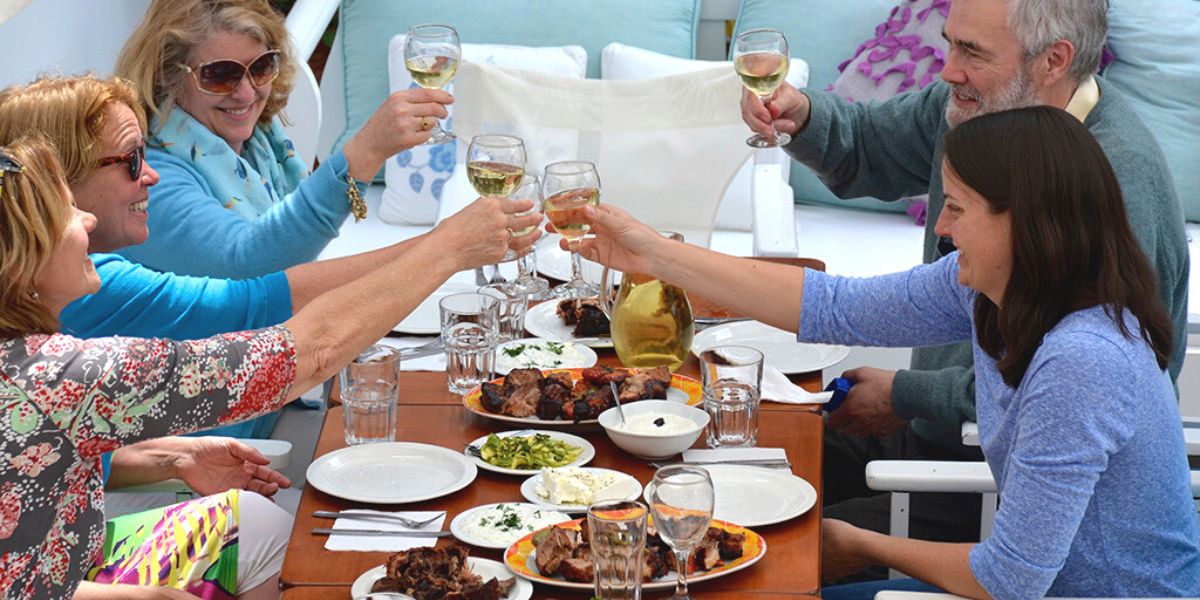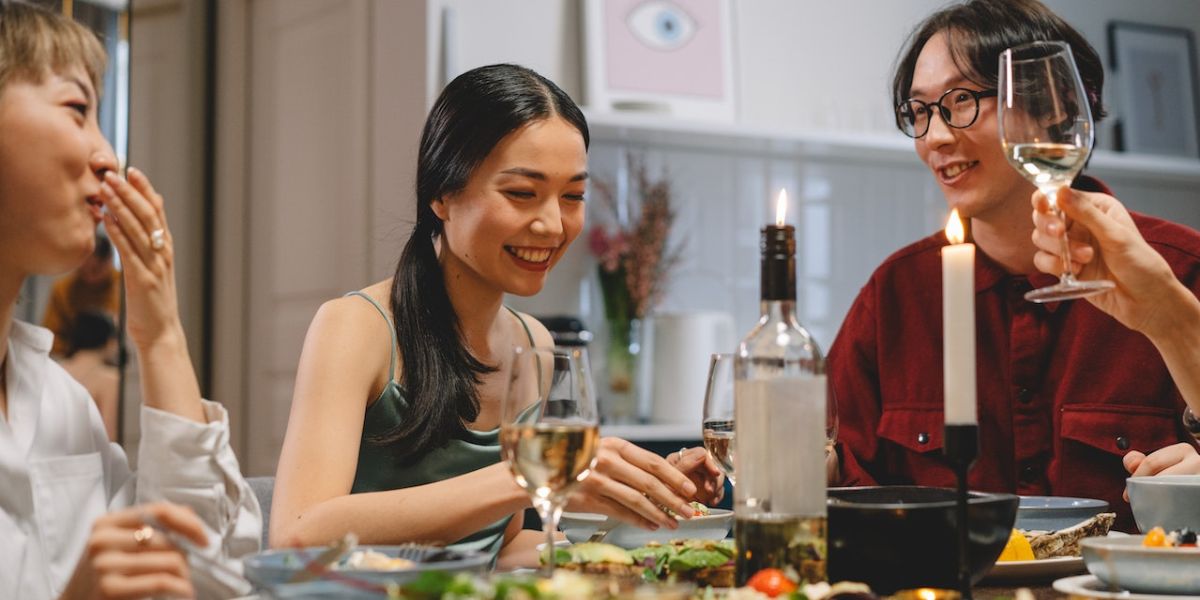One of the best ways to immerse yourself in a culture when travelling is through the food. Local cuisine provides insight into the way people live and goes further than simply eating at a restaurant. So, what a better way to take in some Greek culture than to participate in our Athens cooking class with a Greek chef!
Here’s what to expect from a unique cooking class we designed for you that also includes a 4-course traditional dinner & wine that you will enjoy with your chef at the end of your class.

1. Cook with fresh and seasonal ingredients
Greeks only prefer to cook with the freshest ingredients. In the countryside, most Greeks own gardens (so-called “mpachtses”), or know someone who does, meaning that produce is not only fresh but also organic. In the city, they build trust with the farmers of the local farmer’s market (“laiki agora” meaning people’s market) where they go for its affordable prices and the opportunity to meet and chat.
Those lively markets are filled with only the best fruit, vegetables and other top quality ingredients. The number one rule in Greek cooking is: “out of season = out of our plate”. Greek people know that if they go early in the fish market they are most likely to get the freshest fish directly from the fishermen. Every neighborhood in Greece also has their butcher’s, so best quality meat and supporting the local community goes hand in hand here.
In our Athens cooking class we only cook using seasonal ingredients and this is why the menu is not standard. Time to be creative!
Keep in mind that a tour around the local market and Greek products shops can be arranged at an extra cost.
2. Choose the right seasoning

Another skill that makes traditional Greek cooks great is that they know precisely how to season their food to enhance flavors. Having an advanced knowledge of Greek herbs (mostly oregano, rosemary, dill, bay leaves, thyme and basil) and spices that are commonly used in the cuisine helps considerably. In Greece, we don’t like to cover up the natural flavours of the ingredients with heavy sauces but prefer to keep things simple; adding to that, we prefer putting just the optimum amount of salt and pepper in the food. Of course nobody was born knowing everything about cooking and this is a skill that builds up with experience.
3. Learn traditional cooking techniques

The way that the food is prepared has a very important part in traditional Greek cooking. It is essential to understand that for Greeks, it is less about the recipe and more about the method. It is widely known that the Greek diet is regarded as one of the healthiest in the world because it’s based largely on fruit and vegetables, wholegrains, fish, and dairy products, such as cheese and yogurt.
However, Greek cuisine is considered to be among the most delicious due to its unique techniques. There is an old Greek saying that says “To kalo pragma argei na ginei” which translates to “All great things take time” and there is a philosophy building up behind it. This is why Greek grandmas (“yiayiades”) living in a village, after seasoning and preparing the family’s meal, bring it to the local bakery to be slowly cooked in traditional wood burning stoves; giving it a melt-in-your mouth feeling when served.
4. Experience the famous Greek hospitality
Upon your visit to Greece, you are going to understand soon that more importance is put on gathering around the table with your loved ones, family or friends, than eating the actual food. It’s in our nature to enjoy simple food and lots of wine slowly while discussing our ideas, current affairs and our everyday issues. For us, it’s all about “kali parea” that translates to great company and sharing our food!
On Sundays it is more common for the whole family to sit down for a meal, because it’s usually a non-working day, although, on the holidays of Christmas and especially Easter, the best family gatherings happen. We take a trip to the villages, where “pappous” (grandpa) and “yiayia” (grandma) live. There we meet again with our cousins, aunts and uncles; each one of us takes care of something concerning the meal preparation and afterwards we sit down to enjoy it all together.
Greek hospitality is all about Greek grandmas! No matter if you’re 4, 24 or 40, you’re prepared to hear your over-caring grandma anxiously asking why you didn’t finish your food. She will even insist that you’ve lost weight, so you definitely need to have another bite. “Aren’t you going to try my melomakarona (Christmas Greek dessert) ?” asks grandma, “Come on I made them especially for you, I don’t take no for an answer”.

photo credit: Katerina’s kouzina
Do you want to feel like a Greek in a family sitting? Take our Athens cooking class…
5. Meet our local chef in her cosy home
Are you ready to get your hands dirty? Have our lovely chef Marina welcome you in her warm home and let the Greek cooking experience begin!
Our passionate Chef Marina started cooking when she was only 10 years old and she never stopped since then! She is originally from the Peloponnese, while her love of experiencing new things, challenging herself and traveling led her to study culinary arts in Paris; having worked in quite a few restaurants in Greece, Spain and Sweden, she has created a traditional menu based on local top notch – seasonal ingredients. The former “Top Chef” participant now co-owns a newly opened Greek bistro, in an off-the-beaten neighbourhood frequented by locals not far away from the centre of Athens.
First things first, to get our appetite going we’ll enjoy a few small sips & bites, while being gradually introduced to the menu of our Greek cooking class. Marina will take us on a trip around Greece sharing with us unique cooking traditions along with her family’s recipes. Can’t wait to find out all about those secret tips that take each Greek recipe off the ground? Join us…
The ultimate Greek cooking class in Athens is topped with enjoying the delicious Greek feast you created, while sipping a glass of Greek wine from our 200 different native varieties.


Comment (0)